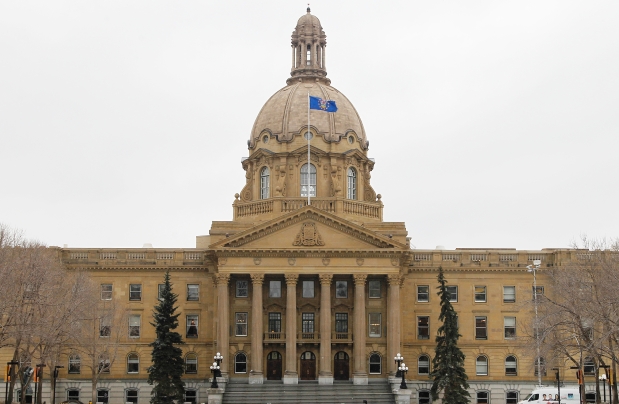EDMONTON – Alberta has set new rules on how resource industries must deal with aboriginal bands, despite the objections of at least one group that says the policy is designed to keep government in the driver’s seat.

“Government has the complete upper hand,” Eriel Deranger, a spokeswoman for the Athabasca Chipewyan First Nation, said Monday. “We don’t want government to be developing stuff for us; we want to be developing things in partnership with governments.”
The final draft of how Alberta will conduct legally required consultation with aboriginal bands over resource development was quietly released Friday afternoon. The document, which will affect almost every company seeking to advance new resource projects, came after years of talks and is intended to reform an approach that all parties have agreed needs improvement.
Both industry and First Nations have said consultation, while required under the Constitution, has been too vague and too often ends up in expensive, time-consuming court procedures.
“The focus has been on ensuring the policy respects treaty rights and provides for orderly resource development on Crown land for the benefit of all Albertans,” Kevin Zahara, spokesman for Aboriginal Affairs Minister Robin Campbell, said in an email to The Canadian Press announcing the policy’s release.
“Based on feedback from First Nations and industry, the policy was revised to indicate that reconciliation is the basis for consultation.”

Get weekly money news
Department spokesman Martin Dupuis said in email that the policy incorporates the latest legal principles and commits the government to annual meetings with aboriginal leaders.
“We believe the centralized office will improve the consistency and efficiency of the consultation process,” he said. “These efficiencies will be passed along to First Nations and industry through more standardized timelines.”
Under the new rules, expected to come into effect this fall, a single government office is to set standards for when consultation is required and how much is enough. It is also to outline what would be necessary for what kind of project.
A levy on industry is to be imposed to ensure First Nations have enough resources to fully participate. The policy allows for benefits agreements between individual bands and companies to remain private, although the deals would be part of provincewide data that would be released.
The final draft is the third try at policy that has twice been harshly criticized by aboriginal leadership.
While Deranger acknowledges that small improvements have been made, major objections remain.
Government still refuses to consult over which lands should be made available for leasing, she said. That unwillingness to ask area aboriginals for input before exploratory work is allowed to begin is one of the main reasons the province’s energy regulator has been forced to hold a hearing in Fort McMurray this week into an oilsands winter drilling program proposed by Vancouver-based Teck Resources (TSX:TCK), said Deranger.
“If the First Nations were consulted during licensing and permitting, the company could work out and mitigate those concerns at the very beginning, when they are applying, rather than be taken aback by an application that an exploratory project that they had been granted licence for is being contested.”
The final draft puts decisions into when consultation has been adequate entirely within the provincial bureaucracy. First Nations will no longer be able to raise concerns about consultation at hearings held by the provincial energy regulator.
Deranger said timelines are likely to be too tight for small bands struggling to cope with massive industrial development. Nor does the document contain any provision for revenue-sharing.
David Pryce, vice-president of operations for the Canadian Association of Petroleum Producers, said industry is sympathetic to some aboriginal concerns. But he said they should be dealt with at a higher level.
“If there are policy questions about the merits of water use or some other broader question, we think that those need to be addressed by the Crown and not addressed at the project application stage,” he said.
“People want a place to have that conversation. Enable that place.”
Pryce added industry supports the policy’s emphasis on predictable timelines and processes. He said industry is willing to pay the proposed levy, pointing out similar fees are already collected in B.C.
Zahara said aboriginal leaders will be consulted about the policy’s implementation.
Deranger said aboriginal leaders are still studying the document before considering their next move.





Comments